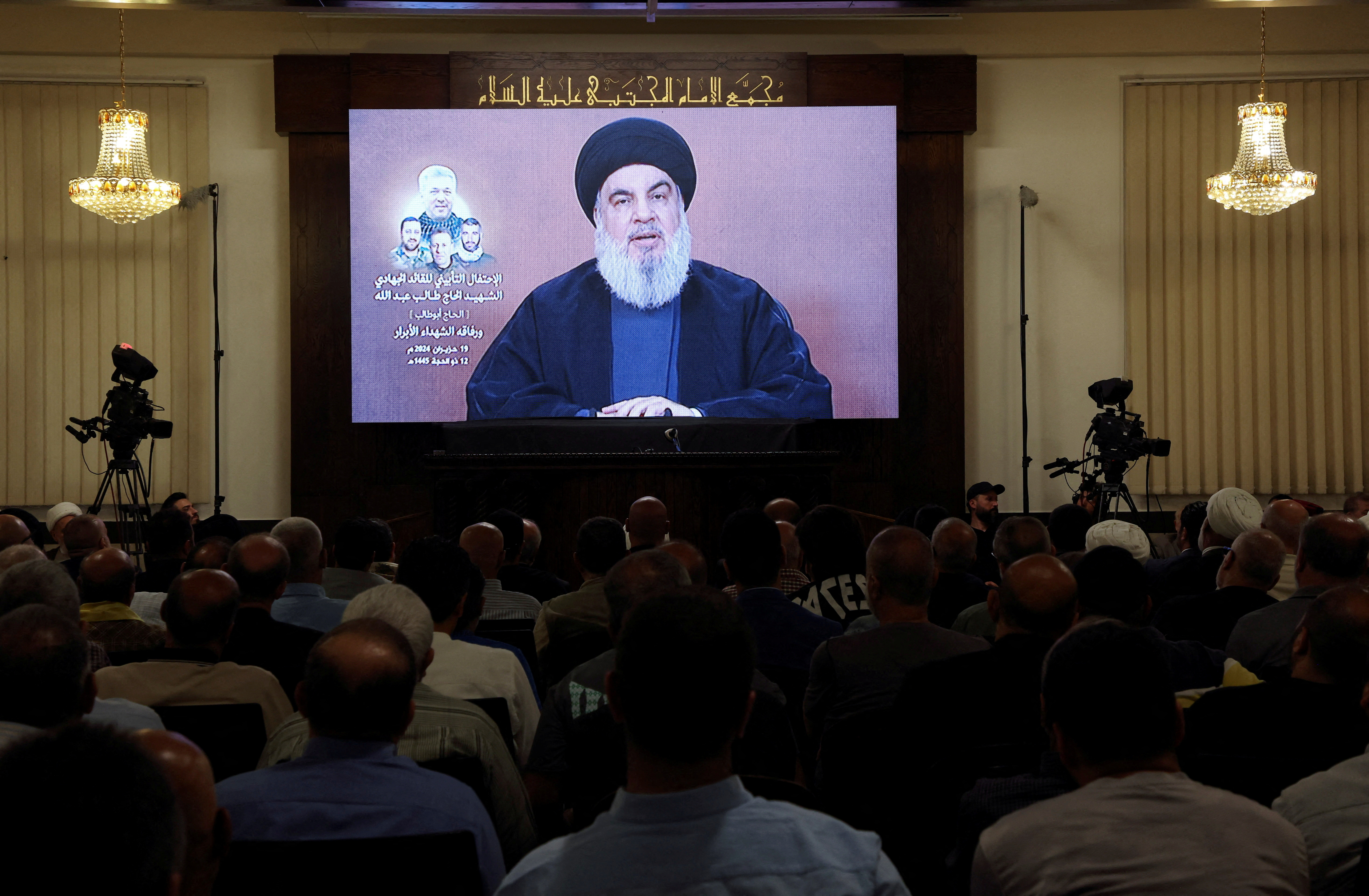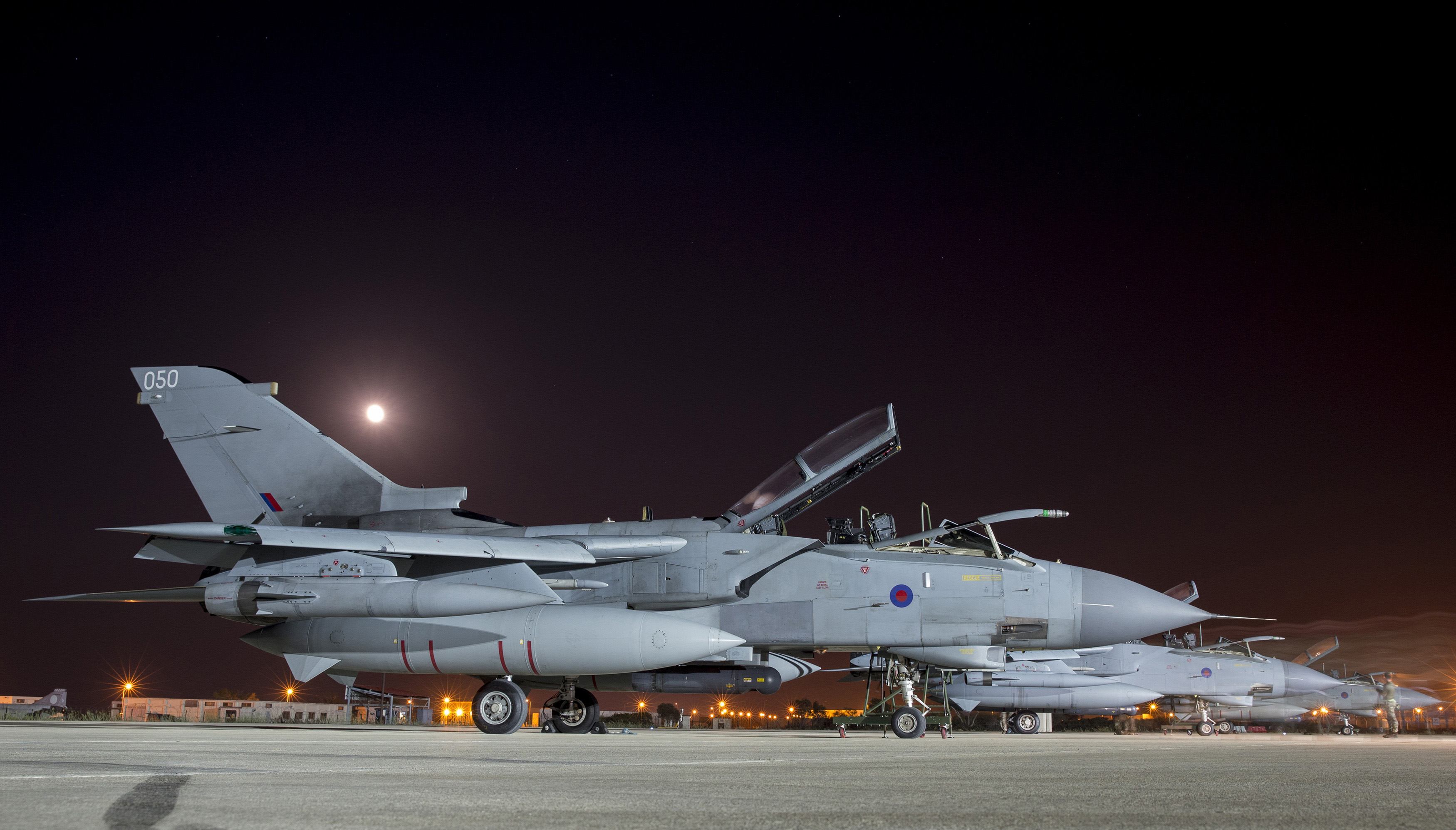ʽIf a wider conflict does break out in the Middle East, then the British bases are really close byʼ
Hezbollah leader Hassan Nasrallah’s threat to Cyprus got a lot of traction in local media, as it was no doubt something out of the ordinary. But commentators have told the Cyprus Mail that it should not be read as a threat to Cyprus per se. Rather, it was directed at the use of the British bases on the island – which Nicosia has no control over – in the event they are used in a full-blown Israel-Hezbollah conflict.
As to whether the threat to the Sovereign Base Areas (SBA) is a credible one, opinions diverge.
Understandably Nasrallah’s rhetoric about Cyprus made for some sensational headlines, some might even call it hype. Perhaps a case of Cypriot parochialism kicking in. But on closer inspection, the segment about the Mediterranean island formed only a small part of the Hezbollah leader’s remarks.
The main thrust of his speech on June 19 constituted a warning to bitter adversaries Israel. Nasrallah said nowhere in Israel would be safe should a full-fledged war break out between the two foes.
He was speaking about the escalating conflict with the Jewish state and said the Shiite group does not want “total war” but is only acting in support of the Palestinians in Gaza.
Hezbollah has been attacking northern Israel since October 8, leading to Israeli reprisals and an escalating conflict Israel has increasingly warned could spark open war.
Were Israel to launch a large-scale offensive against the Lebanese organisation, it must prepare for attacks from the ground, the air and the sea, and the “situation in the Mediterranean will change completely”, Nasrallah vowed.

“No place” in Israel would be spared from the group’s weapons in case of a full-blown war, he stated, adding that Hezbollah would fight with “no rules” and “no ceilings”.
He went on to say that Israel “knows that what also awaits it in the Mediterranean is very big.” Though he didn’t elaborate, this may have been a threat that the group could attack Israel’s offshore gas rigs.
Regarding Cyprus, he said the island had been allowing Israel to use its airports and bases for military exercises, and that Hezbollah could consider it “a part of the war” and strike it were it to allow the IDF to use logistical infrastructure in the country to attack Lebanon.
“Opening Cypriot airports and bases to the Israeli enemy to target Lebanon would mean that the Cypriot government is part of the war, and the resistance will deal with it as part of the war,” Nasrallah said.
Cyprus is not known to offer any land or base facilities to the Israeli military. But in the past it has granted Israel access to its airspace to occasionally conduct air drills, though never during conflict.
The two British bases here have been used for operations in Syria and more recently, Yemen. According to media reports, British Royal Air Force fighter jets and refueling aircraft took off from bases in Cyprus to help thwart a massive drone and missile attack launched by Iran against Israel in mid-April.
Nicosia meanwhile seemed taken aback by Nasrallah’s threats, although it chose its words carefully in responding.
President Nikos Christodoulides said Cyprus was “is in no way involved” in any military operations in the region or elsewhere. He added that the Hezbollah leader’s remarks “do not in any way reflect what’s being attempted, which is to present a picture that Cyprus is involved in military operations”.
With the dust having settled several days after Nasrallah’s fiery remarks regarding this island, analysts have had time to put them in context.
A former Cypriot diplomat told us that the head of the Lebanon-based Shiite group was most likely talking about the possible use of the British bases by the Americans and/or the British.
“I don’t think he was bluffing – if a wider conflict does break out in the Middle East, then the British bases are really close by. In that sense, you can’t dismiss Nasrallah’s words as mere bluster.”
But the source, who spoke on condition of anonymity, completely rules out the possibility that Nasrallah was warning the Republic of Cyprus; rather, he meant the SBAs on the island.
“Also, he [Nasrallah] wasn’t insinuating either that Israeli aircraft might operate out of the British bases. That’s too far-fetched. Israel would never do that. What he most likely meant is any US or British assistance provided to Israel via the bases.”
But at the same, and on the broader geopolitical aspect, the same source said that Cyprus should probably not stand completely surprised by Nasrallah’s outburst.
“Cyprus’ unmistakable diplomatic pivot to the United States and to Israel in recent years, has obviously not gone unnoticed.”
There’s also the matter of joint Cypriot-Israeli military exercises held on the island – including at least one where IDF troops simulated an invasion of Lebanon, given the similarities in terrain. And as Hezbollah likely sees it, the Amalthea humanitarian corridor to Gaza does not ‘offset’ Nicosia’s pro-Israel stance.
However, the same source cautions against taking the analysis too far – in that Cyprus’ ties with its Arab neighbours have soured.
“We retain friendly relations with Lebanon. We need to distinguish between the Lebanese state/government and Hezbollah.”
Bottom line: “Maybe Nasrallah wanted to put pressure on Cyprus, so that they in turn exercise influence on the British, so that the British bases are not used to assist Israel. So it wasn’t a direct threat to Cyprus And I believe Nicosia understood what Nasrallah was getting at.”
Larry Johnson, a former intelligence analyst with the CIA, likewise thinks that Hezbollah’s fulminations were directed at the British alone.
“I believe that Nasrallah’s message was and is intended for the Brits, not Cyprus,” Johnson said in an email.
But he added: “If Israel launches any strikes from Cyprus on Lebanon as part of a broader offensive, yes, I fully expect Hezbollah to launch missiles on British airbases in Cyprus. I don’t think this is a bluff. I take it as a serious warning.”
According to the ex-CIA analyst, it does appear Israel is intent on launching a new front in its war.
“And Lebanon and Hezbollah are the targets. Very foolish. Hezbollah, who effectively defeated Israel in 2006, is better armed and trained today than 18 years ago. Israel is likely to face a major defeat, one that could put the future of Israel in jeopardy.”
At any rate, it’s hard to gauge just how spooked Nicosia got from Nasrallah’s apparent menace. Asked about this, deputy government spokesman Yiannis Antoniou reiterated that “the government feels the threat is without basis.
“Cyprus is not involved in any conflict. It has done nothing untoward, and moreover it is assisting in humanitarian efforts.”
Other diplomatic sources said of Hezbollah’s comments that they do not amount to a direct threat to the Republic of Cyprus.
“Nasrallah wanted to send a message to Israel and others. His comments were likely intended for domestic consumption in Lebanon – as if he wanted to tell his audience ‘We are still here, we are still a player’.”
Notably, the sense conveyed by the diplomatic sources is that Nicosia reads Nasrallah’s threat as targeting not Cyprus, but others.
And these same courses tell us that the Cypriot government maintains channels of communication with Hezbollah. These contacts, however, are not direct but rather via go-betweens who have access to the Shiite organisation.
So whereas publicly downplaying the risks is a wise course of action, it appears that the Cypriot government isn’t doing this merely for the optics. At the same time, it’s understood that the government is concerned about the impact of this affair on tourism.







Click here to change your cookie preferences